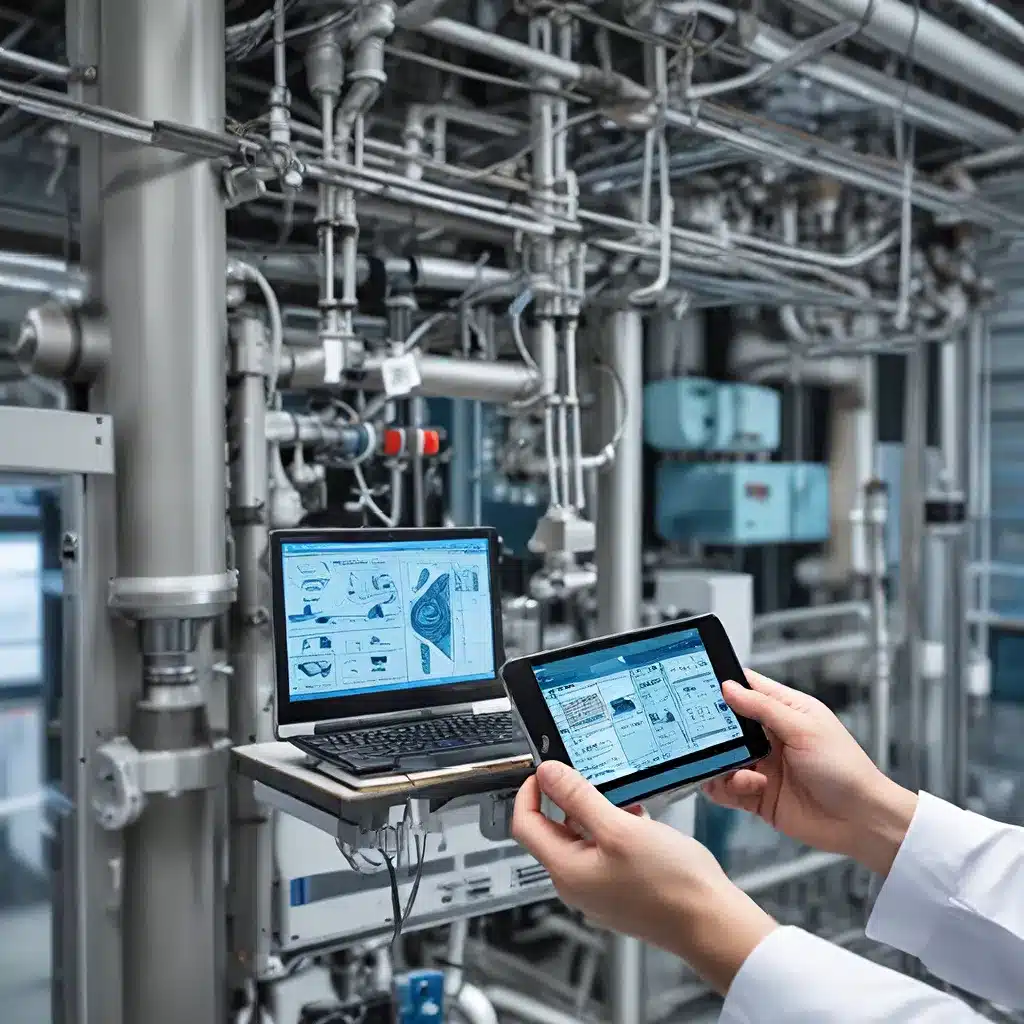
In the rapidly evolving landscape of the pharmaceutical industry, the adoption of sensor networks and IoT (Internet of Things) technologies has emerged as a game-changer, revolutionizing the way manufacturers approach predictive maintenance. By harnessing the power of networked sensors, pharmaceutical companies can now navigate the complex challenges of production efficiency, quality control, and equipment optimization like never before.
Unlocking the Potential of Sensor Networks
At the heart of this transformation lies the seamless integration of sensor network architectures, which are designed to collect, analyze, and respond to real-time data from critical equipment and processes. These systems employ a diverse array of sensors, ranging from temperature and vibration monitors to flow meters and pressure gauges, strategically placed throughout the production environment.
Advances in sensor technology have enabled the development of compact, energy-efficient, and highly accurate monitoring devices that can be easily deployed and integrated into existing manufacturing infrastructure. By continuously gathering data from these sensor nodes, pharmaceutical companies can gain unprecedented visibility into the performance and condition of their critical assets, paving the way for more informed decision-making and proactive maintenance strategies.
Predictive Maintenance: Optimizing Uptime and Efficiency
One of the primary benefits of leveraging sensor networks in the pharmaceutical industry is the ability to predict and prevent equipment failures through predictive maintenance. By analyzing the real-time data collected by the sensor network, advanced analytics and machine learning algorithms can identify patterns, anomalies, and early warning signs of potential issues.
This proactive approach allows pharmaceutical manufacturers to schedule maintenance activities based on actual equipment condition rather than a predetermined schedule, reducing the likelihood of unexpected downtime and maximizing overall production efficiency. By anticipating and addressing issues before they escalate, companies can minimize the impact of equipment failures, optimize their maintenance budgets, and ensure the consistent quality of their products.
Enhancing Security and Resilience
As pharmaceutical companies integrate sensor networks and IoT technologies into their operations, the importance of robust security measures cannot be overstated. These interconnected systems, if left unprotected, can become vulnerable to cyber threats, data breaches, and unauthorized access, posing significant risks to production processes, intellectual property, and customer trust.
To address these concerns, pharmaceutical organizations must implement comprehensive cybersecurity strategies that encompass secure network protocols, access controls, and data encryption. By adopting industry-leading security practices and staying abreast of evolving threats, companies can safeguard their sensor networks and IoT infrastructure, ensuring the integrity and resilience of their production systems.
Energy Management and Sustainability
In addition to enhancing production efficiency and security, sensor networks can also play a crucial role in optimizing energy consumption and promoting sustainability within the pharmaceutical industry. By monitoring energy usage patterns, identifying energy-intensive processes, and implementing smart control systems, companies can significantly reduce their carbon footprint and operational costs.
Through integrated energy management solutions, pharmaceutical manufacturers can leverage sensor data to optimize power distribution, implement energy-efficient equipment upgrades, and automate energy-saving measures. This holistic approach not only aligns with the growing emphasis on environmental responsibility but also contributes to the long-term financial viability and competitiveness of the organization.
Realizing the Full Potential of Sensor Networks
As the pharmaceutical industry continues to embrace the transformative power of sensor networks and IoT technologies, the opportunities for enhanced productivity, quality, and sustainability are immense. By leveraging these advanced tools, pharmaceutical companies can navigate the complex challenges of the modern manufacturing landscape, optimize their operations, and deliver safer, more effective products to patients.
To fully harness the potential of sensor networks, pharmaceutical organizations must adopt a strategic, cross-functional approach that integrates these technologies into their overall business and operational strategies. This requires close collaboration between IT, manufacturing, and engineering teams, as well as a commitment to continuous learning and adaptation to stay ahead of industry trends and emerging technologies.
By embracing the sensor network revolution, the pharmaceutical industry can unlock a new era of predictive maintenance, data-driven decision-making, and sustainable production practices – all of which contribute to the overarching goal of delivering exceptional patient outcomes and maintaining a competitive edge in an ever-evolving landscape.
To explore more about the sensor network and IoT solutions transforming the pharmaceutical industry, visit the Sensor Networks website and discover the latest innovations, case studies, and industry insights.